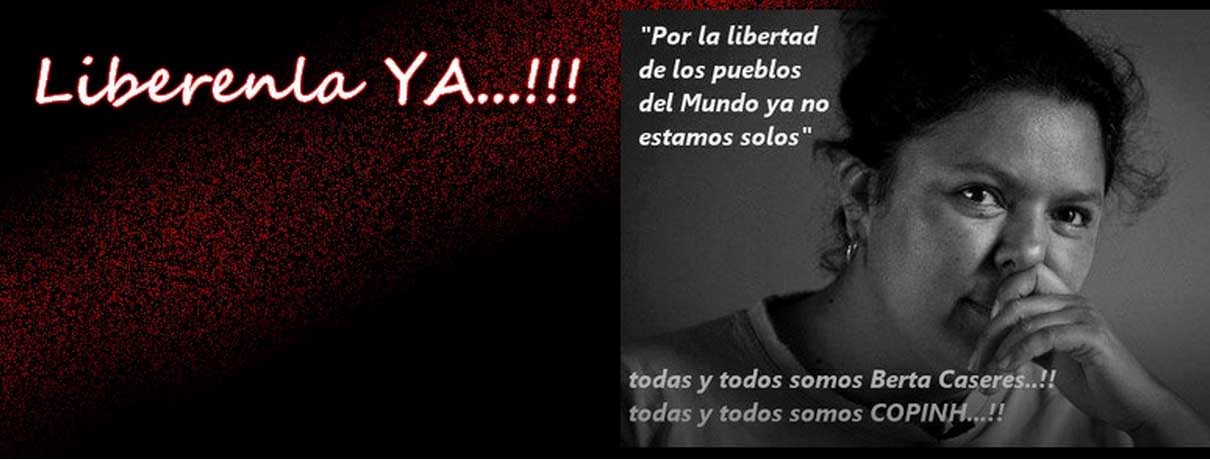More than a month after the murder of Honduran indigenous Lenca activist Berta Cáceres, the Honduran investigation into the crime has gone nowhere. CRLN believes that both the Honduran government and the U.S. State Department are blocking attempts by Berta’s family and human rights groups to transfer the investigation to an international team with no conflicts of interest in the case who could ensure justice.
Berta’s family insists it does not trust Honduran officials to investigate her murder and have called for an
independent, international investigation coordinated by the Inter-American Commission on Human Rights (IACHR)
and whose conclusions would lead to a court case to try those responsible. Honduran law states that the family can have access to the case file and consult with experts of its choosing, but the state prosecutor’s office has refused to share information with them and has ignored their requests for experts to be present at various moments in the investigation. The sole witness to the crime, Mexican environmentalist Gustavo Castro, says that Honduran investigators modified the crime scene and sought to intimidate him into incriminating members of Berta’s organization, COPINH. Honduras’ 98% impunity rate is also grounds for mistrust.
President Juan Orlando Hernández claimed that Honduran investigators were working with the FBI to solve the crime. CRLN members and staff who called the State Department to ask it to support an IACHR investigation were also told that the FBI was working with Honduran investigators. However,
it turns out that this is not true
. Given the U.S. record of support for the current Honduran administration, in spite of massive government corruption uncovered last year and its abysmal human rights record, FBI help might not be what is needed anyway.
President Hernández also called on the Office of the United Nations High Commissioner for Human Rights for help, but as the family and human rights groups quickly pointed out, this office does not conduct investigations, just observes. Finally, President Hernández agreed that the Organization of American States (OAS)’s Commission Against Impunity in Honduras (MACCIH, for its Spanish acronym) could make an investigation. However, that body is only consultative, and the Honduran government has no obligation to enforce its recommendations. The U.S. State Department agrees, however, that MACCIH is the proper channel for the investigation.
It seems clear that both Honduras and the U.S. are primarily engaged in public relations and damage control around Berta’s murder, not interested in finding the material and intellectual authors of her death. Both are interested in at worst destroying, at best keeping the lid on, social movements which disrupt the ability of corporate extractive industries to do their business. That business is protected by both private security guards and the
Honduran military and police, heavily funded by the U.S
., who are deployed against activists, like Berta and many others, in the social movements. COFADEH, the most prominent human rights organization in Honduras, is talking about the
activity of death squads
again.
Berta’s daughters and son have returned from meetings in the DC area, disappointed at not getting official U.S. support for an IACHR investigation. They have returned to Honduras, where they will participate in an International Solidarity event called “Berta Cáceres Vive” [Berta Cáceres lives] April 13-15, organized by COPINH, the organization their mother co-founded. As U.S. citizens, the ball is in our court now. Stay tuned for next steps as CRLN and other organizations concerned about Honduras identify strategies to prompt a credible investigation into Berta’s death.

